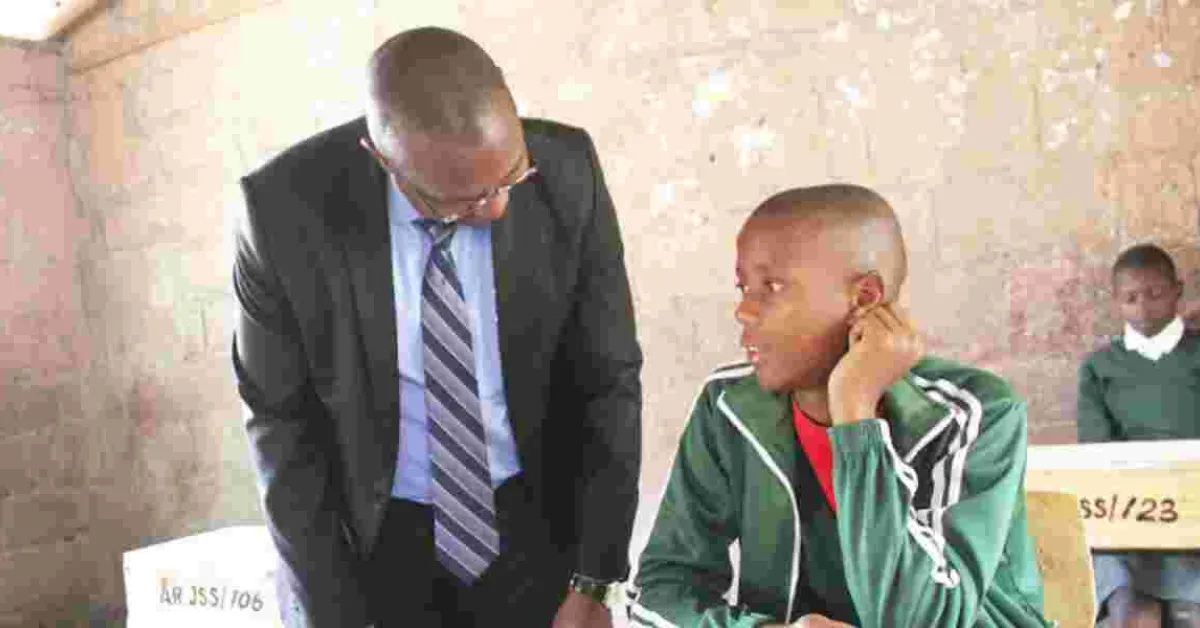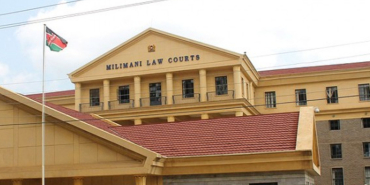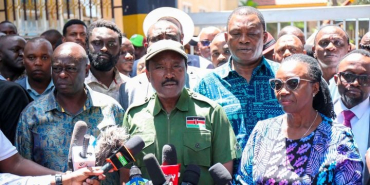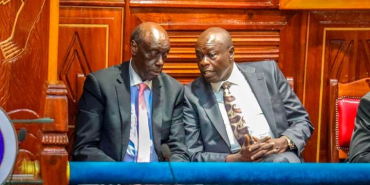End of an Era: Candidates to Sit Last KCPE Under 8-4-4 System

After 38 years, the Kenya Certificate for Primary Education Examinations (KCPE) exams will finally come to an end as the last cohort sits the test.
The conclusion of the steadfast 8-4-4 curriculum has arrived with 1,415,315 candidates set to partake in its final round. Filling the gap will be the Competency-Based Curriculum instilled by the Ministry of Education and structured around a 2-6-6-3 basis. This updated program is hailed as optimal and best suited for shaping a student's skill set. Its paradigm involves a transformation from dependence on assessments through examinations as seen in the 8-4-4 regime, which thrived more on the competition with immense pressure loaded on each child to achieve excellence. Maria Goretti Nyariki, who took the first KCPE exam in 1985, shares her perspective on the changes.
Nyariki contends that the pursuit of high performance in exams has escalated throughout the years at the expense of the exam's authenticity. She argues that corruption and exam cheating have facilitated this troubling trend, compromising the integrity of the results. Nyariki highlights that the quest for top-notch grades has driven exam commercialization following the significant interest these exams have garnered from students, their parents, and schools. Regrettably, she states that this heaps undue burden on learners to fulfil the expectations of others. Despite the challenges faced by the Competency-Based Curriculum (CBC), Nyariki believes its successful implementation requires substantial resources. She asserts that CBC will expose learners to various opportunities, enabling them to discern their desired life paths from an early age.
Nyariki observes that the current generation faces numerous academic challenges like excessive assignments and holiday homework. As the Kenya Certificate of Primary Education (KCPE) is phased out, learners will now take their first national exam at Grade 6. The Kenya Primary School Education Assessment will replace KCPE, but it will not determine learners' progression to Grade 7, which marks the transition to Junior Secondary School. A tool has been developed to monitor the progress of learners. Last year, the first group of students took the KEPSEA exam at the same time as the KCPE. This year, the situation remains the same as 1,282,574 Grade 6 candidates also take the KEPSEA exam.
The KCPE and KPSEA tests are scheduled from Monday, October 30 through Wednesday, November 1. To better evaluate students, Mathematics, English, Kiswahili, Science, Social, and Religious studies have been replaced under the new KEPSA program and learners won't do them for their first national exam. Now students will be assessed in a wider breadth of topics including Mathematics, English, and Kiswahili, as well as an Integrated Science (I.S.) section expanding into realms of Home Science, Agriculture, Science and Tech, and Physical Health. A Creative and Social Sciences segment (C.A.S.S) rounds out the material and includes Arts and Craft, Music, Social Studies, and Religious Education.
Although there are many subjects, they have been consolidated into five areas for testing. The KEPSEA exam will contribute only 40 per cent to the learners' final grade, with the remaining 60 per cent coming from continuous assessment tests conducted in Grades 4, 5, and 6.














Comments
After failure of 2010 poop…
Permalink
After failure of 2010 poop katiba,hungry billionaire Kenyans have began another expensive experiment with their children.Kenyans self inflicted themselves with the high cost of living by transferring their country to a group of less than 4000 elite gangsters.None of the so-called county ministers,governors,senators,WPs or nominated prostitutes have done anything positive other than looting.Kenyans preferred the creation of 4000 looting jobs to employment of 500 000 other low cadre employment.STOP CRYING WAJINGA NYINYI.
Kenya was better off with…
Permalink
Kenya was better off with the imperial presidency, there was no violence, no competition, the civil service worked, the government was small and less costly, continuity was assured, and the looting was on a minimum, by only a single family . It happens in kingdoms all over the world, Britain included, and that's where Kenyans are running to, away from their trashy democracy.
Just go Back to the…
Permalink
Just go Back to the Proficient 8-4-2-4 system.
8 Primary
4 Secondary
2 Advanced
4 University
This time include local…
Permalink
This time include local languages in the education system. Failure to do so, will lead to another dead end education.
No foreign systems and languages will ever work in Kenya and for Kenyans and Africa as a whole.
"Any education that does not take into consideration the inseparable unity between the African lineage and African thinking is based on false principles and must lead to the alienation of the individual from his own self, his principles and his past "
Let us not deceive ourselves with some cosmetic changes in our education system. We need change in the language we use. We need to be taught by our parents who we are, our forefathers religion, the history of our forefathers and our forefathers skills in local languages.
"A man's language is a principle part of his component, perhaps a piece of his soul....by taking a person's language, we kill and destroy his mental individuality and his creativity"
Our languages should and must be included in our education system otherwise that education system is only serving the interest of foreigners who earn billions and in the process destroy us with the foreign languages.
Time for change is now!!!
Germans speak in German language
Americans speak in English...and also accommodate other foreign languages.
Japan speak in Japanese
France speak in French
China speaks in Chinese
On and on and on
What do Kenyans speak and why?
What do Africans speak and why
Are Kenyans and Africans still slaves?
Time to think about the type of change we are bringing to our education system
Ndugu @ Anonymous: My friend…
Permalink
In reply to This time include local… by Anonymous (not verified)
Ndugu @ Anonymous:
My friend who was born and raised in Jamaica and later moved to the USA, and has visited Kenya several times, I call him JAK (Jamaican-American-Kenyan), has told me that Kenyans are more British than the real British people.
In Kenya, we do have a National language - Kiswahili which can be used in all public meetings, parliament, social and private meetings, yet the brainwashed people of Kenya feel at home communicating in the English language, still have colonial/religious names as their first names, celebrate days they were born as if they are still under British mental occupation SIXTY YEARS AFTER INDEPENDENCE!
The Kenyans are so brainwashed that they don't even know that they are brainwashed! What a shame!
@Anonymous: While I…
Permalink
@Anonymous: While I wholeheartedly support your position of instruction in our native languages, I think it is an unworkable proposition. let's look at the bigger question; how would one teach chemistry formulas in Kiswahili or even describe the solar system? Let us be brutally honest with ourselves, we are held lock, stock, and barrel by methods and ways of Western Civilization na hapo hatuwezi jibandua. Do you hear of Tanzania professionals working in places like South Africa or even in Western countries? Their lack of English knowledge has cocooned them into only the East African market.
@Mlandizi, We need to work…
Permalink
In reply to @Anonymous: While I… by Mlandizi (not verified)
@Mlandizi,
We need to work on our languages. We were not created to depend on others and no one was created for us to depend on. Foreign languages were forced on us by punishing us if we use our local languages. This was and still is part of colonization.
To free ourselves that is one thing we must accept and start moving towards.
We had chemistry and every other subject in our own languages.
We cannot knowingly accept to be subjects to self imposed masters.
When slaves were taken to America, the first thing that was taken away from them using the power of the whip and the gun was both their language and their name. That was the only way to keep those slaves as slaves for 400 years ( As it has been)
Yes, it is painful and will require alot of hard work but that is what we must do.
Hayati Mwalimu Borito…
Permalink
Hayati Mwalimu Borito Kambarage Nyerere once said, "It can be done, play your part."
Add new comment